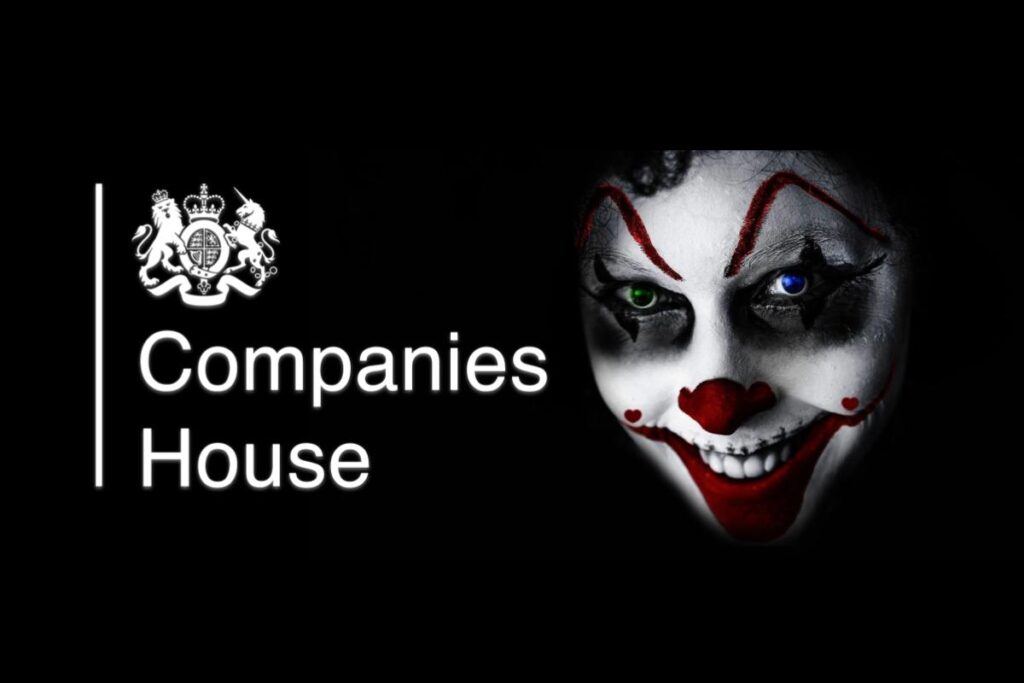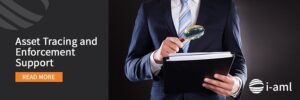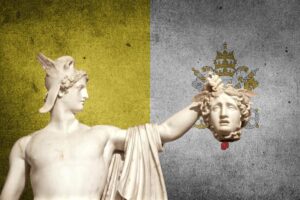The financial expert Graham Barrow explains how Britain’s corporate register enables criminals to move funds without anyone noticing. For more than two decades, a bank executive who ended up in a room with Graham Barrow knew that they were in serious trouble.
With a warm smile and a quick sense of humor, Barrow is far from intimidating, but much of his career as an expert on financial crime, money laundering and compliance has been spent with people who have, as he politely puts it, found themselves in “regulatory distress”.
Financial regulators don’t just issue banks with a fine when their processes fail. There is usually a process of retraining and assessment, and as a training specialist for the British regulator’s Supervisory Enhancement Programme — and then at banks including Coutts, HSBC and Deutsche Bank — Barrow had a front-row seat for the moments bankers prefer to forget. In 2008 he was in the room with the person who supervised the Icelandic banks when she “looked at her BlackBerry and said, ‘I have to go — my banks have gone bust’.”
Perhaps surprisingly, he still gives bankers the benefit of the doubt. “I’ve never worked with any bank that I’ve thought was evil,” he says. The problem, for him, is inherent in the business model of financial services. “The issue, across the entirety of banking, is that the risk of laundering money is different from every other risk a financial institution faces.”
A bank that is lending money is taking on risk (of non-payment), in return for returns (from interest). A bank that checks where that money comes from is also taking on more risk (of having to turn away business), but it’s spending money to do so. “Banks make money from dealing with criminal funds,” Barrow says. “It is one of those risks that the more they do about it, the less they earn, and the more it costs them to do it.”
When the financial incentives all point away from due diligence a culture can develop in which people become habituated to letting things slide. One of the more worrying meetings of Barrow’s career took place when he was preparing a senior executive at Deutsche Bank for a regulatory interview. The bank’s Russian desk had been placing billions of dollars’ worth of “mirror trades” in London markets, buying stocks in roubles and selling them in sterling. Regulators decided that the main purpose of these trades was to quietly move money from Russia to the UK, and the Financial Conduct Authority fined the bank £163 million. The executive agreed with Barrow that “obviously, we are in a lot of trouble”, but when Barrow urged him to tell the truth, “his response was, ‘OK — which particular truth would you like me to come out with?’”
It is not only financial services that suffer from systemic problems. With Russia’s invasion of Ukraine, attention in the UK has once more turned to the oligarchs and organized criminals who launder their money through British companies. Barrow is well known as an expert on Companies House, the British register of businesses. Barrow uses Companies House as a source of investigations for his podcast, The Dark Money Files. When his fellow financial crime expert Tom Keatinge was called to give evidence to the Treasury Select Committee recently, he told MPs: “I find it extraordinary that… Graham Barrow… is able to point out the peculiarities in Companies House on a daily basis, yet Companies House itself is not able to do that.”
.
.
About 3,000 businesses are registered on Companies House every day, and Barrow thinks 20 to 25 per cent are questionable. Almost 10 per cent are apparently registered by UK-resident Romanians, who make up 0.5 per cent of the population. Thousands more “mini umbrella” companies are registered to employ agency workers without taking on legal responsibilities or paying National Insurance, often by offshoring these responsibilities to directors in the Philippines.
Almost none of the information filed on Companies House is checked, and because it isn’t linked to HMRC’s data, Barrow says, “you can file completely different sets of accounts in both places, and no one will check”. A company can be set up in your name in minutes, without your knowledge — Barrow recently reported on a street in Anglesey where residents found that a series of zoos had been registered to their addresses — but it takes a court order to remove your name from the register.
For organized crime and the international oligarchy, this facilitates the creation of laundromats. “Criminals do not ever create one company,” Barrow explains. From anywhere in the world, you can “log on to Companies House, create 15 or 20 companies, and in less than 24 hours the incorporation documents will be available in PDF format to download”. Virtual office companies will provide a UK address — “they don’t really do any due diligence either” — which can be used to set up bank accounts in a third country. “So the company is British, you live in a second country, the banking will be in the third country. There’s now three jurisdictions involved, which makes law enforcement virtually impossible.”
Professional money launderers move money through networks of these shell companies until it is impossible to say where it came from, before transferring it to trusts in low-tax, high-privacy havens such as the British Virgin Islands.
Barrow estimates that the biggest of these networks contains more than 100,000 companies and is used to launder the proceeds of crime and corruption around the world. “You might talk about the Russian laundromat, the Azerbaijani laundromat, the Danske Bank scandal — they are the same laundromat. They are exactly the same network run by the same people with the same companies.”
This system is expertly run and extremely well funded: roughly 10 percent of global GDP is held in tax havens. The Economic Crime Act, which became UK law on 14 March after four years of inaction, does introduce new requirements to register foreign ownership of assets, but it gives those owners a leisurely six months to do so, and it remains to be seen whether it will be enforced. Reform of Companies House will take longer still, as proposed changes are still in the form of a white paper. The government’s investment in reform so far is £20m, about 0.001 per cent of the amount of money laundered a year.
For Barrow, only a worldwide commitment to co-operation and transparency would really damage the interests of oligarchs. Sanctioning assets — especially assets that aren’t even in the UK — is in his view “a waste of time… it’s not going to touch them”.
“The only way we beat this problem is transparency,” he says. “And it is by having a global approach to ensuring that, because all high-end money laundering is done through corporations. You can’t put millions and millions through a personal account without it being spotted. And therefore, transparency of ownership and control of corporations is the only way to do it. It’s not going to happen instantly, but the more we push those dominoes over, the fewer places there are to hide, and the more obvious it becomes that people are hiding.”
.
March 22, 2022 Published by The New Statesman.







